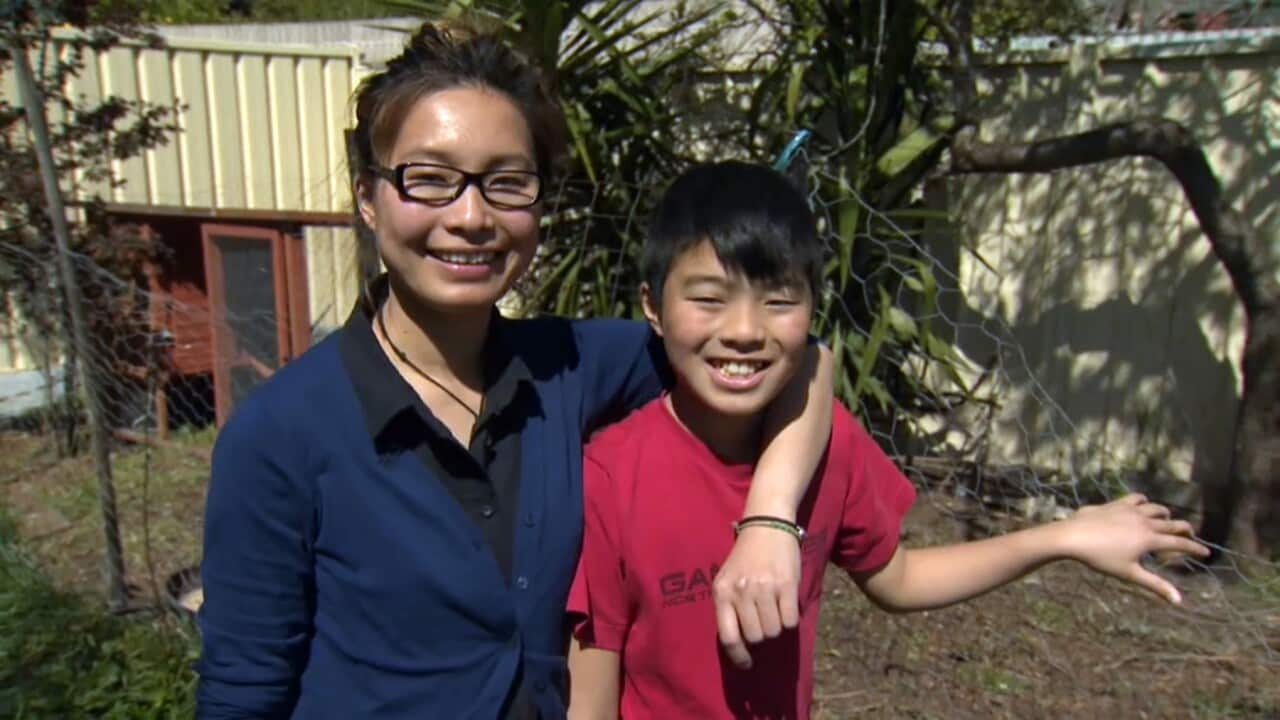A Vietnamese single mother who was set to be deported with her son because she has hepatitis B will be allowed to stay in Australia after an outpouring of support from medical experts and the public.
Sidney Vo and her 12-year-old son Billy have lived in Australia for 10 years, but her latest visa application was rejected earlier this year.
Despite being in good health and no longer needing medication, the cost of her potential health treatment was deemed too much of a burden for Australian taxpayers. After exhausting all appeal options, Ms Vo made a in August to have her case reopened in light of changes to immigration health rules that came into effect in July.
After exhausting all appeal options, Ms Vo made a in August to have her case reopened in light of changes to immigration health rules that came into effect in July.

Sidney Vo and her son Billy say Australia is home. Source: SBS News
Immigration Minister David Coleman intervened this week to grant the 36-year-old a one-year temporary visa with the option to apply for another visa without having to leave the country.
The last-minute ministerial intervention follows months of uncertainty for Ms Vo and her son, with the pair forced to move out of their Canberra apartment and stay with relatives in Melbourne while Mr Coleman considered their situation.
Ms Vo credits the minister's change of heart to the lobbying of medical professionals who wrote a joint letter to Mr Coleman about her case last month.
"I feel really thankful for all the support. Without it I wouldn't have had this outcome," Ms Vo told SBS News on Saturday.
More than 32,000 people signed an online petition calling for her and Billy to remain in the country they have called home for so long.
Ms Vo said Billy was relieved to be able to continue his education in Australia.
"I told him straight away, and I said 'you don't need to go to Vietnam anymore' and now we're looking forward to finding him a high school for next year," Ms Vo said.
The childcare worker plans to return to Canberra and apply for a new regional work visa with the ultimate aim of securing permanent residency.
Immigration health changes
Hepatitis B is an infection that is prevalent in parts of South-East Asia and causes liver inflammation and can lead to liver cancer if not managed.
But doctors argued the infection can be easily treated with regular medication for much less than the government calculated, allowing people like Ms Vo to live a healthy life and make a full contribution to society.
There were also concerns that Ms Vo's rejection would contribute to stigma about the disease in some migrant communities in Australia, which could deter people from seeking treatment.  In July, the government changed the health rules for visa applicants, upping the cap on the amount the government was prepared to fork out for treatment from $40,000 to $49,000.
In July, the government changed the health rules for visa applicants, upping the cap on the amount the government was prepared to fork out for treatment from $40,000 to $49,000.

Sidney Vo has raised her 12-year-old son Billy in Australia. Source: Facebook
At the same time, the time frame for assessing the cost of care was changed from a person's lifetime to just 10 years, giving younger migrants a much better chance of clearing the health hurdle.
But Ms Vo's case was closed before the rule changes came into effect, meaning ministerial intervention was her only hope.
Ms Vo, who has become a hepatitis B advocate, is pleased that the rule changes should mean no other potential migrants will be disadvantaged because of the disease which can be well managed.
"We are physically healthy, we can contribute to the community, we can work and do whatever as normal people can do," she said.









